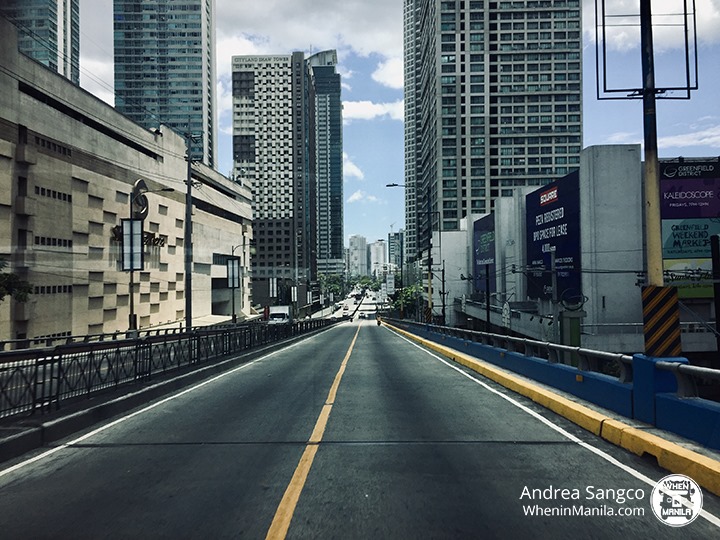President Rodrigo Duterte announced last April 24 that several provinces in the country will shift to a ‘General Community Quarantine’ (GCQ) instead of the Enhanced Community Quarantine (ECQ) currently in place. However, many are still confused about exactly what that means.
Here’s everything you need to know about the GCQ and how it affects you.
(PSA: These areas in the Philippines will continue to be under an Enhanced Community Quarantine)
What areas will be under GCQ? Aurora, Abra, Aklan, Apayao, Agusan del Sur, Agusan del Norte, Basilan, Batanes, Biliran, Bohol, Bukidnon, Camiguin, Cagayan, Camarines Sur, Camarines Norte, Capiz, Davao del Norte, Davao de Oro, Davao del Sur, Davao Oriental, Davao Occidental, Dinagat Island, Eastern Samar, Guimaras, Ifugao, Ilocos Norte, Ilocos Sur, Isabela, Kalinga, La Union, Lanao del Norte, Lanao del Sur, Leyte, Maguindanao, Masbate, Marinduque, Misamis Occidental, Misamis Oriental, Mountain Province, Negros Occidental, Negros Oriental, Nueva Vizcaya, North Cotabato, Northern Samar, Palawan, Quirino, Romblon, Sarangani, South Cotabato, Siquijor, Sorsogon, Southern Leyte, Sultan Kudarat, Samar, Surigao del Norte, Surigao del Sur, Sulu, Western Samar, Zamboanga del Sur, Zamboanga del Norte, and Zamboanga Sibugay.
What sectors can operate?
- Agriculture, fisheries, forestry, and logging
- Manufacturing and processing plants and the entire value chain (raw materials, inputs, and packaging) of basic good products, essential products, medicine, and medical supplies
- Mining and quarrying
- Extraction of crude petroleum and natural gas
- Food manufacturing and supply chain
- Food preparations and water refilling stations
- Power, energy, water, IT and telecommunications supplies and facilities, waste disposal services, sewerage, property management, and building utility services
- Media
- Manufacturing companies and suppliers of construction equipment
- Data gathering, survey activities of the Philippine Statistics Authority for COVID-19, national ID registration
- Publishing activities
- Advertising and market research
- Real estate activities, except buying and selling
- Legal and accounting
- Insurance, reinsurance, and pension funding, except compulsory social security
- Architecture and engineering activities, technical testing and analysis
- Scientific and research development
- Government frontline offices
- Electricity, gas, steam and air conditioning supply
- Logistics service providers: cargo handling, warehousing, trucking, freight forwarding, and shipping lines
What places or businesses will be reopened?
- Malls and commercial centers: hardware stores, clothing, and accessories, and non-leisure stores
- Hospitals and medical clinics
- Dental and EENT (eye, ear, nose, throat) clinics
- Veterinary Clinics
- Retail establishments: groceries, supermarkets, hypermarkets, convenience stores, public markets, pharmacies, drug stores
- Banks and capital markets
- Accommodation
- buildings used as quarantine facilities for returning overseas Filipinos, and for temporary accommodation of workers in essential industries like healthcare facilities, banks, BPOs, exporters, and other frontline service sectors
- Hotels for areas outside Luzon for existing bookings for foreigners or those with long-term bookings; stranded passengers; distressed OFWs; healthcare workers
- Barbershops, salon, spas, and other personal care industries with strict health standards
- Wholesale and retail trade and repair of motor vehicles and motorcycles
- Laundry shops, including self-service machines
- Business process outsourcing companies with temporary accommodation and shuttle services for on-site workers or work-from-home arrangements
What services will be reopened?
- Repair and installation of machinery and equipment
- Repair of computers and personal and household goods
- Services to buildings and landscape activities, except landscape care
- Employment activities, manpower services for essential activities
- Security and investigation activities
- Rental and leasing, except for entertainment or mass gathering purposes
- Gasoline stations
- Transit of permitted persons to and from allowed establishments
- Funeral and embalming services
- Postal and courier services
Who will be allowed out?
- Humanitarian assistance personnel from civil society, NGOs, relief operations
- Pastors, priests, imams from religious sects for necrological, funeral rites
- Security personnel
- Employees of export companies
- Employees of Philippine Postal Corporation
- Workers for relocation, limited works on select railway projects including MRT-3, as accredited by the Department of Transportation
- Construction workers accredited by DPWH for facilities for quarantine and the health sector; emergency works, flood control, disaster risk reduction
- Airline and aircraft maintenance employees, pilots, crew
- Ship captains and crew
Will public transportation resume? Yes, at reduced capacity. Social distancing guidelines must be implemented.
What will remain closed or prohibited?
- Gyms, fitness studios, and sports facilities
- Sports-related mass gatherings, including but not limited to: trainings, games, tournaments, championships
- Libraries, archives, museums, and other cultural activities
- Gambling and betting activities
- Travel agency, tour operator, reservation service and related activities
- Activities of membership organizations
- Physical classes, but flexible learning arrangements are allowed
- Entertainment-related mass gatherings, including but not limited to: theaters, cinemas, large concerts, festivals, carnivals, conventions, shows, pubs, bars
- Business-related mass gatherings, including but not limited to: trade shows, conferences, conventions, workshops, retreats
- Politically-related mass gatherings, including but not limited to: election rallies, polling centers, parades, speeches, addresses
Other rules
- Children (0 to 20 years old), elderly (60 years old and above), and people with high-risk health issues are not allowed to go out of their homes
- Those who will head out of their homes in areas under GCQ must always bring an ID to prove that they are between the ages of 21-59. Checkpoints will remain along city or provincial borders.
- Malls should limit the entry of shoppers and implement mandatory temperature checks and mandatory use of masks and alcohol. They are also required to keep the centralized temperature at 26 degrees Celsius and to shut off the free wifi service.
- Local government units shall enforce a curfew for nonworkers.
- Airports and ports can only operate for the unhampered delivery of goods.
What do you think about this?
Do you have a story for the WhenInManila.com Team? Email us at story.wheninmanila@gmail.com or send us a direct message at WhenInManila.com Facebook Page. Interact with the team and join the WhenInManila.com Community at WIM Squad. Join our Viber group to be updated with the latest news!





